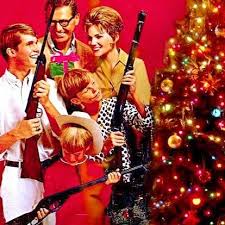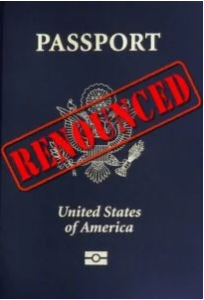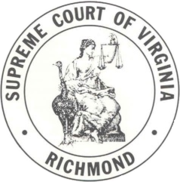
UPDATE: The guidance document has been withdrawn.
Before we talk about the latest development, let’s take a second to bring everyone up to speed on the long history of this issue.
March 2014 – They are fine
Back in March of 2014, a police officer from Colorado wrote to the ATF asking whether firing an AR pistol from the shoulder using a Sig brace as a shoulder pad would cause the pistol to be reclassified as an SBR. They effectively said ‘no‘.
November 2014 – They are mostly fine
Then, in November of 2014, in response to a request for classification from Black Aces Tactical, they backpedaled significantly on their previous position, but did not actually reverse it.
January 2015 – All shouldering is banned
But they were just getting started down this twisted and winding road of redefinition and obfuscation. On January 16, 2015, the ATF released an open letter on the stabilizing brace issue in which they took the position that:
1) “Any person who redesigns a stabilizing brace for use as a shoulder stock makes a NFA firearm when attached to a pistol with a rifled barrel under 16 inches in length or a handgun with a smooth bore under 18 inches in length.
2) “Redesign is defined as ‘to alter the appearance or function of’.
3) “Since the pistol stabilizing brace was neither ‘designed’ nor approved to be used as a shoulder stock, use as a shoulder stock constitutes a ‘redesign’ of the device because a possessor has changed the very function of the item.
4) “Any individual letters stating otherwise are contrary to the plain language of the NFA, misapply Federal law, and are hereby revoked.”
March 2017 – Suddenly they are fine again … mostly
On January 5, 2017, the counsel for SB Tactical, LLC sent a letter to ATF Acting Director Thomas Brandon requesting reconsideration of the position taken in the January 16, 2015 open letter.
The ATF officially responded to this request on March 21, 2017 in a letter in which they claimed they were not reversing their previous position but in effect did just that. The entire letter is linked above but the key elements from the letter are:
“With respect to stabilizing braces, ATF has concluded that attaching the brace to a handgun as a forearm brace does not ‘make’ a short-barreled firearm because … it is not intended to be and cannot comfortably be fired from the shoulder.”
“Therefore, an NFA firearm has not necessarily been made when the device is not re-configured for use as a shoulder stock — even if the attached firearm happens to be fired from the shoulder.”
“To the extent the January 2015 Open Letter implied or has been construed to hold that incidental, sporadic, or situational ‘use’ of an arm-brace (in its original approved configuration) equipped firearm from a firing position at or near the shoulder was sufficient to constitute a ‘redesign,’ such interpretations are incorrect and not consistent with ATF’s interpretation of the statute or the manner in which it has historically been enforced.”
December 2020 – Forget all that we said in the past. An SBR is whatever we say it is on any given day
To those who are able to read sarcasm, let me just say that “I am certain the fact that this was released shortly after the Biden transition team met with the ATF is purely coincidental.”
On Friday December 18, 2020 the ATF published a request for comments in the Federal Register entitled Objective Factors for Classifying Weapons with “Stabilizing Braces”.
In that ‘guidance document’, the ATF basically says that the manufacturer’s intent, and even the end-user’s intent, does not matter. All that matters is the ‘objective design features’ of the item (as determined by the ATF of course).
In their own words:
If ATF’s classification of a submitted sample demonstrates that the objective design features of the firearm, as configured, do not support the manufacturer’s purported intent and characterization of the accessory on that particular firearm as a “stabilizing brace” or “arm brace,” ATF will classify the firearm based on the objective design features, as Federal law requires.
They go on to list 15 different criteria to identify said ‘objective design features’ (none of which provide quantitative guidance) but then goes on to say that even this list isn’t really the final word.
These factors are based on known stabilizing braces and similar attachments. No single factor or combination of factors is necessarily dispositive, and FATD examines each weapon holistically on a case-by-case basis. Because of changes in design or configuration of a weapon or attachment, as well as future changes in technology, this list is not exhaustive and other factors may become relevant to a weapon’s classification. Moreover, in addition to the objective design features of a submitted sample, FATD also considers the marketing of both the item and the firearm to which it is attached, compared to the manufacturer’s stated intent when submitting an item.
The Issues
These criteria are so arbitrary and capricious that they give no real guidance to either the industry, who will be gambling R&D dollars if they design products intended for this market space, or to buyers, who risk having the ATF visit their homes, demanding that previously legal products be surrendered on a whim.
Without concrete guidance (comprised of quantifiable design features), this will only serve to have a chilling effect on the entire marketplace for stabilizing braces. Given the stated animosity toward gun owners expressed by the incoming administration, I cannot help but believe that this is an intended ‘feature’ rather than a ‘bug’.
The other part of the proposal that concerns me is the seemingly kind offer to allow those who have items newly-deemed to be subject to NFA regulation to take advantage of an expedited registration process and a ‘free’ tax stamp. Given the Biden administration’s stated goal of attempting to classify most modern sporting firearms as subject to the NFA, I cannot help but think this might be a trial-run for such an attempt to get gun owners to register their AR and other semi-auto firearms in the NFA. I should note that I have no information indicating this to be true but it seems far too convenient to be mere coincidence.
So what can you do to help?
The ‘significant guidance document’ aspect of the rulemaking process requires that the public and those affected have an option to comment on the guidance document but this period is much less than for a formal rule promulgation. This is known as the ‘notice and comment period.’ The notice and comment period for this guidance document ends on January 4th, 2021 (the mere 14 day comment period over the holidays is of course yet another completely innocent coincidence I am sure).
We need you to make your voice heard! At the bottom of this article is a link that will take you to Regulations.gov where you may submit your own comment. The following are suggested comments you might consider:
Suggested Comment #1
Policymaking which imposes such a significant burden upon both citizens and industry should not be undertaken lightly. Here, we have burdensome definitional changes / expansions which have the potential to damage or destroy segments of one of America’s few growing industries and it is not based upon an identified problem. Rather, it is based upon mere conjecture.
Suggested Comment #2
The supposed ‘criteria’ laid out in this guidance document are so arbitrary and capricious that no reasonable person could look at them and make an informed decision. The ATF admits as much when they say that evaluations will take place “on a case-by-case basis.” This fails to give adequate notice to those subject to the rules thereby imposed against them. This violates both the procedural and substantive due-process rights of manufacturers, buyers, and those who already own such items.
Suggested Comment #3
Without concrete guidance (comprised of quantifiable design features that place a product in the purview of the NFA), this will only serve to have a chilling effect on the entire marketplace for stabilizing braces. The ATF is empowered to regulate NFA items based upon the clear language of the act, not upon an “I know it when I see it” arbitrary system. It is past time that Congress revisits and refines the deference granted to the administrative aspect of the legislative branch.
Suggested Comment #4
ATF has failed to consider less intrusive forms of regulation that might accomplish the same goals. By specifically defining design characteristics that bring an item under the purview of the NFA, they could achieve the same stated goal without exposing law-abiding citizens to the chilling effect of this arbitrary and capricious definitional scheme.
Suggested Comment #5
Passage of this proposed rule would do nothing to enhance safety but would only place additional bureaucratic roadblocks in front of law-abiding collectors and swamp ATF staff who are already overwhelmed. The result would be a drastic increase in the processing time for NFA applications and potentially a collapse of the stabilizing brace industry.
These are merely suggestions. You are welcome to pick one or more of the above comments or write your own but now that you know just how significant the issue is we are facing, I urge you to head on over to the Regulations.gov page for the proposed rulemaking and make your voice heard!
 With the holiday season upon us, I am getting quite a few emails and phone calls asking whether Virginia’s new universal background check law prevents the gifting of firearms.
With the holiday season upon us, I am getting quite a few emails and phone calls asking whether Virginia’s new universal background check law prevents the gifting of firearms.


 I have received multiple emails and telephone calls over the last several days asking if I am the attorney named John Pierce who is representing, or fundraising on behalf of, Kyle Rittenhouse.
I have received multiple emails and telephone calls over the last several days asking if I am the attorney named John Pierce who is representing, or fundraising on behalf of, Kyle Rittenhouse. The Supreme Court of Virginia announced today that they were extending the judicial emergency yet again.
The Supreme Court of Virginia announced today that they were extending the judicial emergency yet again.




